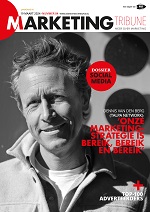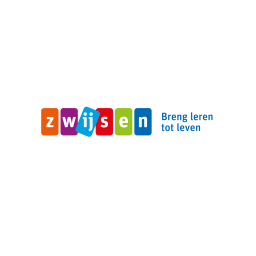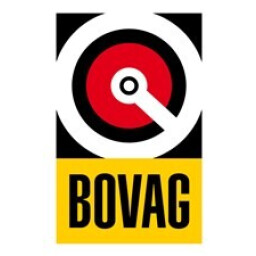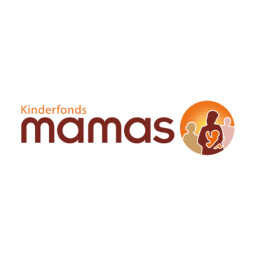Real Madrid is sterkste clubmerk in voetbal
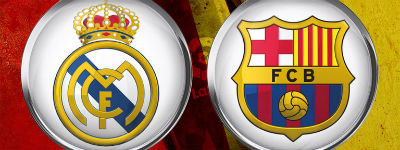
- Sponsoring
- 8 jun 2017 @ 12:00
- Link
-
Redactie Sponsoring
Redactie
MarketingTribune - ZakelijkMerkenOnderzoekVoetbal
- 8 jun 2017 @ 12:00
- Redactie Sponsoring
Real Madrid prolongeerde zijn titel in de Champions League, maar is ook commercieel de sterkste voetbalclub. Dit blijkt uit de Brand Finance Football 50. De club van Cristiano Ronaldo passeerde eeuwige rivaal FC Barcelona. Opmerkelijk is dat een veel minder succesvolle club, Manchester United, dankzij een uitgekiende commerciele strategie de meeste waarde vertegenwoordigt: 1,7 miljard dollar.
Jaarlijks doet adviesbureau Brand Finance dit merkonderzoek. Het is een berekening van de kracht en waarde van de belangrijkste voetbalclubs ter wereld. Daarbij wordt gekeken naar uiteenlopende criteria, zoals stadiongrootte, teamwaarde, aanwezigheid op social media, sportprestaties (uiteraard!), fan-tevredenheid, fair-play rating, stadiongebruik (ook voor andersoortige events) en inkomsten. Daar komt een ‘Brand Strength Index’ (BSI) uit met een maximum van 100. Deze index drukt uit in hoeverre het merk bijdraagt aan het bedrijfsresultaat.
Real Madrid’s superb season sees Los Blancos eclipse rivals Barcelona to become the world’s most powerful football club brand. The brand power of both clubs was already formidable and unmatched worldwide. The fierce rivalry of El Clásico, their dominance on the European stage and footballing styles, that are as beautiful as they are effective, served to create brands that are unparalleled by German, French, English or Italian rivals. Barça had remained just fractionally ahead of Real in recent years, until now. After claiming yet another La Liga title and a record 12th Champions League victory, Real’s Brand Strength Index score is up from 94.6 to 96.1, edging ahead of Barcelona on 95.4.
Wat is het geheim van Manchester United?
However, whilst Real can bask in the glory of its unparalleled reputation, it could be doing a lot more to capitalise on its on-pitch success. Despite being football’s most powerful brand, in terms of brand value, it still trails Manchester United by a considerable margin. United, despite finishing a disappointing 6th in the Premier League, is the most valuable brand in football, worth US$1.733 billion to Real’s US$1.419 billion.
United’s success is partly the result of an enduring halo effect from the good times under Alex Ferguson. However, the most crucial ingredient has been the club’s commercial nous and ability to convert its success into lucrative deals across dozens of industry sectors and national territories. In contrast, while Real has blockbuster deals such as its reported billion euro agreement with Adidas, it has not leveraged its brand equity to the same extent as United, failing to pursue the same range of partnerships.
Real could perform significantly better in growth markets outside Europe too. In some, such as the Middle East, Real is popular, yet Brand Finance research into the vast and therefore critical Chinese market demonstrates that Real has a lot of work to do; it lags behind not just United but also Bayern Munich in popularity.
David Haigh, CEO of Brand Finance: 'Real must now pay as careful attention to its off-pitch strategy as it does to its on-pitch performance. Newfound status as the world’s most powerful brand ought to provide the club with ammunition in ongoing discussions with Emirates to renegotiate the shirt sponsorship; Real must not miss the opportunity.'
Dominantie van Premier League
Premier League clubs continue to lead the world when it comes to commercialising their brands; six of the top ten most valuable football brands are English. Title rivals Chelsea and Tottenham have recorded some of the biggest gains this year after successful seasons that saw Chelsea regain its status as England’s best, under dynamic new manager Antonio Conte. Commercially, Chelsea stand to gain significantly through a reported £900 million, 15 year deal with Nike as well as from a near 50% increase to the capacity of Stamford Bridge. Tottenham is also expanding its home; the new White Hart Lane has been innovatively designed and will offer 61,000 spectators the opportunity to see Spurs on home turf. Tottenham’s brand value is up 58% on last year and Chelsea’s 61% to US$1.248 billion.
All Premier League teams continue to benefit from the vast revenues brought in by the latest broadcasting rights deal with Sky and BT. The relatively equitable split is particularly helpful to smaller clubs and helps to explain how a club such as Bournemouth (which joined the Premier League just two years ago and comes from a town of just 180,000 inhabitants) controls a more valuable brand than much longer established European top tier clubs such as Olympique Lyonnais, Inter Milan, and AS Roma. The costs of missing out on Premier League status are clear too. Another season in the Championship for Aston Villa and relegation for Sunderland see both drop out of this year’s list.
Sunderland’s loss has been Newcastle’s gain. The Magpies’ promotion will see revenues return and restore international exposure to the Tyneside club. As a result, brand value is up 92% to US$247 million, making Newcastle this year’s fastest growing brand.
Juventus en Bayern München
Juventus’ Serie A win and full Champions League run helped improve brand strength by three points, putting the Italian club in the top 5 for brand strength. Brand value has improved significantly too, growing 72% since 2016. However, like Real Madrid, Juventus has not fully leveraged the strength of its brand for commercial purposes. Foreign tours, marketing investment, strategic partnerships with brands and even non-commercial organisations can all help to improve willingness to purchase, whether that is merchandise, match-day tickets, or subscriptions to broadcasters of Serie A matches. Juve is somewhat constrained in its ability to strike marquee deals by the duration of its existing partnerships with Adidas and Fiat. Nonetheless, Italy’s most valuable football club could do better.
Bayern Munich has stayed level in 5th. The Bundesliga title has increasingly come to seem Bayern’s by right. The club is so dominant locally that glory can really only come from the international stage, so a failure to reach the Champions League semi-finals could mean 2017 is interpreted as a rather mediocre season. Though this year’s on-pitch performance might possibly be seen as underwhelming, Bayern is making great strides off the pitch to enhance the value of its brand. The club is trying to make up for financial differences with European rivals by investing in China. Its new Shanghai office is the first of any European football club to open in mainland China. The club has also launched two football schools in Qingdao and Shenzhen this year, which has increased the brand’s familiarity among young players, as has its intensive investment in social media. Bayern’s hard work is paying off. Brand Finance’s research shows that the club has a very strong presence in China, while the Bundesliga (generally less widely broadcast than La Liga or even Serie A) is China’s most watched foreign competition after the Premier League.
Kansen en bedreigingen voor Rusland
Zenit St Petersburg is Russia’s only entry in the top 50. Its €168 million commercial revenues (led by headline sponsor Gazprom) are the primary driver of brand value, putting it significantly ahead of the two major Moscow clubs CSKA and Spartak. The soon to open Krestovsky Stadium should help Zenit pull further ahead of the pack; its 68,000 capacity is more than 50% larger than any other club arena, allowing Zenit to leverage its brand through enhanced match-day revenue. The stadium will be a key venue for next year’s FIFA World Cup.
At present, the Russian Premier League creates limited interest outside the CIS, however as billions of fans focus their attention on the country, 2018 could be the perfect opportunity for Russia’s clubs to strengthen their brands and build a following in Asia in particular. There are risks too though. Hooliganism was once known as the English Disease but is now more closely associated with Russia, which is also seen as a laggard on issues such as racism and homophobia in sport. Russian clubs must be mindful of the fragility of this once-in-a-generation opportunity, plan carefully to improve awareness, win fans, and secure commercial partnerships.
Bekijk hier de volledige lijst van de Brand Finance Football 50.
.@RealMadrid overtakes @FCBarcelona as football’s strongest brand. Brand Finance Football 50 report: https://t.co/A7xFu4eBHW pic.twitter.com/uMinALw81v
— Brand Finance (@BrandFinance) June 6, 2017
-
Redactie Sponsoring
- Werkt bij: MarketingTribune
- Functie: Redactie
- Website:http://www.marketingtribune.nl/sponsoring/
- Profiel »
- brands
- voetbal
- FC Barcelona
- Real Madrid
- onderzoek
- voetbalclubs
- Brand Finance
- merk
- merkwaarde
- Manchester United
- merkonderzoek
- Brand Finance Football 50
Nieuwsbrief
- Mis niets! Schrijf je nu in voor de gratis nieuwsbrief.
- Inschrijven
Laatste reacties
Word abonnee en ontvang:
- ✔ 16 keer per jaar MarketingTribune Magazine
- ✔ Korting tot wel €100,- op events
Meest gelezen
Laatste Nieuws
- ING en Concertgebouworkest 35 jaar... 18-04-2024
- Heineken hoofdsponsor 10e editie... 16-04-2024
- Atradius shirtsponsor Nederlandse... 11-04-2024
- MediaMarkt nieuwe hoofdsponsor... 03-04-2024
- Partnership Herbalife met... 27-03-2024
- Duitse voetbalbond ruilt vanaf 2027... 22-03-2024
MarketingTribune Events
- 28mei 2024
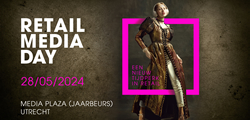
Retail Media Day
- 13jun 2024
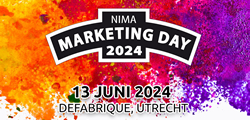
NIMA Marketing Day
- 17sep 2024
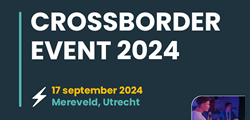
CrossBorder Event
- 3okt 2024
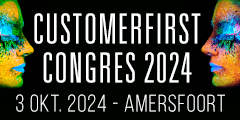
CustomerFirst Congres
- 10okt 2024
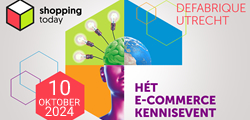
Shopping Today
- 12nov 2024

Grand Prix Content Marketing

